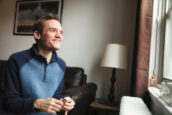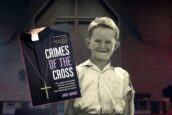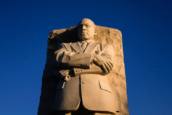
An Australian author reworks the gospel stories to put women centre-stage and observe the need for people to contribute to something larger than themselves.
Rachael is the daughter of Yosef and Miriame, and sister of Joshua (Jesus). She is smart, independent and passionate.
Growing up in a harshly misogynistic society, she learns to write the alphabet and becomes apprentice to the village’s “mistress of the healing arts”.
She falls in love with Joshua’s best friend and eventual betrayer, Judah (Judas Iscariot).
Rachael is also the creation of Leslie Cannold, whose novel, The Book of Rachael (Text Publishing, $32.95), was inspired by a BBC documentary where the names, fates and even burial places of Jesus’ brothers were itemised, but nothing had been recorded concerning his sisters.
Unable to right this injustice using historical records, Cannold redressed the balance fictionally.
Researching the novel was the first time she had read the Torah and the gospels.
She knew it was a sacred text to many people but thought that what she read wasn’t what people thought was in there.
“I don’t think most people read it,” Cannold told Insights. “That’s pretty much been confirmed as I’ve gone around the country. Most people have what they think is in it told to them by other people and the bits that get focused on are the bits that cohere with our modern-day sensibilities.
“The bits that don’t get talked about are the bits that don’t.”
“So I read the whole thing. There are bits in it that are incredibly boring and there are bits that are extraordinarily, appallingly violent, and retributive.
“There’s collective punishment and the death of entire families because of the sin of one person, and an awful lot of misogyny as well as other things that are not saintly or godly, moral or good or other words we tend to attach to the Bible.
“I think it is important to read it as a general principle. I think if you are going to attach yourself to a faith and you think there’s an essential text, you need to have read it.”
Seeking justice
Who was her favourite character in the Bible?
“I don’t really have a favourite character. I certainly had people I was desperate to know more about … and it was mostly the women that interested me.
“I was really interested in Jezebel; I was really interested in those who were painted as either colourless female characters (like Esther) or evil female characters. I wondered what it would have been like to be those people because surely you couldn’t have done something so extraordinary and been such a colourless person.”
When asked what Rachael might be doing now if she’d been born in our time Cannold has said the character would be Prime Minister, or the head of the UN, or head of a Fortune 500 company.
When Insights asked what would Jesus be she said she didn’t understand any of the other characters in the book as well as she understood Rachael.
“I guess that my take on Joshua was that he was an extraordinary person in an extraordinary time. His character for the purposes of this novel was content to live pretty much as he was expected to live; but because of the extraordinary things that happened he was catapulted into becoming a person who was needing to make sense of that for himself and finding some kind of justice for someone he loved, who he felt was wronged.
“I think 2,000 years later he would be the same kind of person, seeking a different world of justice for the people he loved who were wronged, many of whom were women.”
Cannold made an early decision that The Book of Rachael would be secular. Joshua is an impassioned activist but he never claims to be the Messiah or the Son of God.
That secular bent accords with Cannold’s own professional agenda.
Described as a “talking-head ethicist”, she is an author, columnist and researcher. In 2005 she was noted as one ofAustralia’s top 20 public intellectuals and in 2011 she was made Australian Humanist of the Year.
She was once considered a protégé of one of the most influential modern philosophers, Peter Singer, but now does not share his utilitarian views.
“I never really nailed my flag to the mast and that’s okay because most of what I do is practical ethics.
“I became disillusioned with the idea that there was one meta-ethical theory that would supply, in a top-down manner, all of the answers.”
Cannold was presented with her humanist award at a dinner in April. The citation says, “In recognition of her outstanding contribution to public debate on bio-ethics, especially issues affecting women and family life. She excels at presenting complex and controversial ideas with clarity. She is much appreciated by thinking people as a beacon of the well-informed, reasoned argument in the media sea of misinformation.”
She told Insights, “Hopefully I’m adding to the informed end of the public debate.
“The humanist accolade was really very nice for me … but I really wouldn’t classify myself as a humanist, though certainly parts of it speak to me.
“I’m very interested in evidence. I like reason but I’m not a crusader against religion.
“I think it’s important for everyone to find a way of living in the world and a philosophy that makes sense to them and helps them to live a good life and according to what they think a good life is.”
Resisting fundamentalism
In her acceptance speech for the humanist award she said she thoughtAustralia’s secular state was a miserable failure.
She said she struggled to see how an inclusive approach to the secular state could ever work because, whatever the denomination, a fundamentalist approach to religious texts and truths makes one intolerant and disrespectful of difference.
There are always fundamentalists and they are always intolerant and disrespectful of difference, she said. “Why? Because they believe they have sole access to the truth and, by virtue of this, that those who disagree with them are just plain wrong.”
She told Insights, “I think that the nature of the beast is that there is a constant pushing of the barriers by those who don’t really believe in a secular state; who believe in their own philosophies and who think that the right thing is for other people to be guided by them as well.
“It is the job of the state to resist those encroachments. But I think our political process is compromised in that and we haven’t seen very good resistance at all to those forces.”
She believes a secular state should allow everyone to live as they feel is right as long as what they are doing doesn’t interfere with the ability of other people to do the same.
Even if 80 per cent of people thought we should live according to fundamentalist Christianity, she thinks politicians should resist that. “That’s a fundamental grounding in philosophy that makesAustraliaa good place to live, an equitable place to live, a diverse and tolerant place to live.”
“You see something so foundational under attack and people not recognising how important it is until it slips away … a death by a thousand cuts.”
Her examples of practical problems with inclusive secularism were two programs currently running in Australian government schools “that the founding fathers intended to be, and indeed are still believed to be, free, compulsory and secular by nature. Those two programs are Special Religious Education or ‘scripture’ classes and school chaplaincy.”
She said she was not against religion in itself, however: “Many of the founders of secularism were religious.”
Secularism, she said, is a form of governance designed to ensure that Australians of every and of no faith are free to live their lives and to raise their children in accordance with their beliefs, and to not miss out on life’s opportunities because of their personal faith.
“When you don’t have faith,” she has said, “you have to come up with a reason why you’re here on the planet. My reason is that I want to feel when I look back on my life that I have left the world a better place than when I came into it.”
She said, “I think one of the essential projects in life is to try to find meaning for yourself. I can’t really tell other people how to live; I find it presumptuous to do so I guess that is why I get so affronted when other people try to tell me how I should be living.”
Stephen Webb
- Categories: Features





























































1 thought on “A secular imagination”
Pingback: Wednesday’s Links Of Love – Sisters Are Doing It (Science And Secular) | Token Skeptic